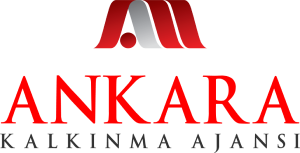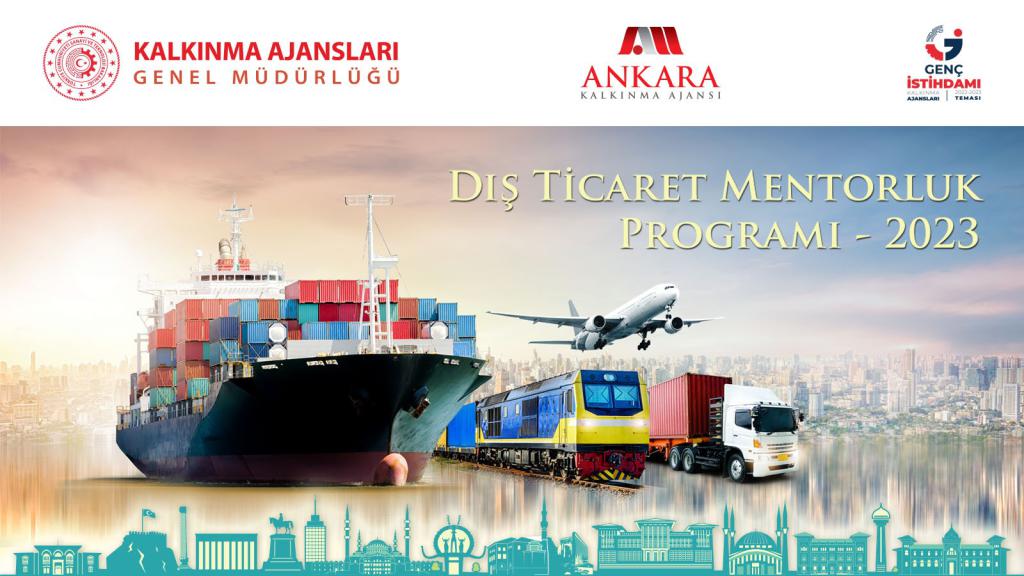Foreign Trade Mentoring Program- 2023 Starting
The Foreign Trade Mentoring Program, designed by our agency in order to increase the foreign trade volume and contribute to the sustainable export target in all districts of Ankara, and which will be carried out during 2023, has been launched. With the program, it is aimed to export the products of goods and service producers residing in Ankara to international markets for the first time, to increase their current export amounts and/or to contribute to the process of entering new markets.
During the program, analysis of the corporate needs of the companies deemed suitable and potential buyer intelligence will be provided, as well as training, consultancy, training, consultancy, coaching and mentoring will be provided.
Content of the Program
The main activities to be carried out within the scope of the program and expected to be completed within 6 months are summarized in the sample table below. Detailed description of each module is in the appendix of the program.
|
Explanation |
1 |
2 |
3 |
4 |
5 |
6 |
|||
|
Stage 1: Current Situation |
Module 1 |
Making Current Situation Analysis |
|
|
|
|
|
|
|
|
Stage 2: Needs Analysis |
Module 1 |
Preparation of Needs Analysis Report (SWOT, GAP, PEST, etc. Analysis) |
|
|
|
|
|
|
|
|
Module 2 |
Determination of Marketing Strategies and Preparation of Action Programs |
|
|
|
|
|
|
||
|
Module 3 |
Determining the Testing and Certification Needs of Companies for their Products and Creating Roadmaps for Certification Processes |
|
|
|
|
|
|
||
|
Stage 3: Foreign Trade |
Module 1 |
During the Establishment of the Foreign Trade Department, Consultancy and Training in Company Visits |
|
|
|
|
|
|
|
|
Module 2 |
Determination of Target Markets and Market Entry Costs |
|
|
|
|
|
|
||
|
Stage 4: Commercial Intelligence |
Module 1 |
Business Intelligence and Listing of Potential Buyers and Supporting the Initial Export Processes of Companies |
|
|
|
|
|
|
|
The stage at which the companies participating in the program will start in the process and which modules will be applied to the enterprises will be determined after the negotiations with the enterprise, and the plan in the sample table above will be created for each enterprise.
At the end of the program, businesses will both increase their institutional capacities and become compatible with foreign trade processes, and will have first or qualified export experience for their products.
Eligible Applicants
- Businesses that have no previous export experience and want to export for the first time
Businesses that have foreign trade experience but have not been able to evaluate their export potential at the desired level and in the market
In both cases, businesses registered in Ankara, which aim to harmonize their corporate structure with foreign trade conditions and are open to making efforts in this regard, are expected to apply to the program.
Calendar
Application Deadline: March 20, 2023 (17:30)
It is aimed that all businesses will complete the program by the end of 2023.
Application
Applications to the programs will be made by filling out the form in the link below.
https://forms.gle/aPRM7P2y39JU3Shf7
Evaluation
In order to ensure efficiency in the program for which limited participation is envisaged, a contract will be signed between the participating enterprises and the Agency, in which the enterprises undertake their active participation in the processes.
The mentoring program to be organized is free of charge and the quota is limited to 20 companies.
Communication
Investment Support Office Specialist Ahmet Arvas (aarvas@ankaraka.org.tr)
Stage and Modules
Stage 1: Current Situation Analysis
Methodology: A printed form containing the subject headings presented as an itemized list below will be prepared and filled in by face-to-face interviews with the companies.
Output: The output of the 1st stage will be the “Current Situation Analysis Report”.
Module 1
- By visiting the company on-site and through face-to-face meetings;
- Analyzing the current corporate structure of the company and analysis of digital marketing and corporate identity acquisition strategies,
- Analysis of the organization's vision, mission and strategies,
- Analysis of the organizational and management structure (job descriptions, authorities and responsibilities),
- Current human resources analysis,
- Analysis of the sales-marketing system and its requirements,
- Analysis of the finance-accounting system and its requirements,
- Analysis of technical (production-product development) processes,
- Analysis of supply chain management processes,
- Analysis of brand management processes,
- Analysis of digital marketing and corporate identity studies,
- Analysis of the company's visibility, advertising and promotional activities (creating social media accounts, reviewing the web page, etc.)
- Analysis of e-commerce opportunities
- General economic and commercial terms and foreign trade knowledge/interest analysis,
- Produced product & service Know-How level analysis,
- Intellectual and industrial property rights knowledge level analysis,
- Geopolitical and Geoeconomic information importance analysis,
Stage 2: Needs Analysis
Methodology: SWOT, GAP, PEST Supply/Value Chain analysis, GANTT, etc.
Output: The output of the 2nd phase will be “Needs Analysis Report” and “Strategic Planning, Business Plan and Action Programs”.
Module 1
- The background studies and needs analysis reports of the companies involved in the study will be prepared, and the companies will be informed about the studies and the process.
- The sub-sectors of the sector in which the company operates and the product groups within the scope, production, supply and cost elements will be examined through the current sector reports.
- An end-to-end project management perspective will be gained by analyzing the deficiencies of companies in project management skills, traceability and sustainability.
Module 2
- The financial statements of the companies for the last 3 years will be examined, the capacity utilization rates of the companies will be determined, and if necessary, strategies suitable for financial situations and economies of scale will be determined.
- Strategic marketing and action programs will be prepared.
- Information will be given about state aids.
- Information will be given about risk protection methods and receivables insurance in exports.
- Eximbank, Export Development Inc., KGF etc. Information will be given about the support elements of the institutions for the financing of exports.
- In case of need, basic information will be gained about basic equity-increasing and export-enhancing targets such as R&D, P&D, Design Center.
- The advantages of union structures such as angel investment networks, local, rural and women entrepreneurs and cooperatives in international markets will be detailed.
Module 3
- The necessary test and certification needs for the products of the companies will be determined,
- Roadmaps will be drawn up for certification processes,
- Certificate application processes will be supported.
3. Stage: Foreign Trade
Module 1
- During the project period, a work flow chart that can be traced in exports will be prepared, process management for export will be made operational in the organization of the company and advice will be given to establish an export department. (The support to be provided includes supports such as supporting the employment of suitable export personnel, supporting the regulation of foreign trade business processes and providing training to employees)
- Foreign trade training including the following topics will be given to each company during a private visit or online. The content of the training;
- Basic foreign trade training will be given,
- Payment methods will be evaluated in reading letters of credit and export requests based on real events/cases,
- The use and outputs of data sources required for desk-based market research will be analyzed,
- Trainings will be given to ensure the intelligence of commercial and communication channels.
- The effects of the Turkish Currency Protection Law on foreign trade processes, the basic methods of currency risk management and basic derivative transactions will be given.
Module 2
- The GTIP code of the product to be exported will be determined,
- Based on the first 6 digits of the 12-digit GTIP code of the selected products of the company, at least 2 potential buyer countries and competitor countries will be determined based on the last 3 years supply-demand figures of the world trade balance for the products, comments explaining the reasons and results of the figures will be written and their graphics will be drawn,
- Marketing strategies will be determined as a result of the determination of target markets,
- Non-tariff barriers will be reported,
Stage 4: Business Intelligence
Module 1
Business intelligence and listing of potential buyers and initial export processes of companies will be supported.
- A list of potential importers will be drawn up using B2B business intelligence portals, product/GTIP based buyer intelligence channels and the contractor's international connections,
- Contact information of potential importer companies and employees will be reached,
- The e-mail addresses of the export units of the companies will be reached,
- In case of incoming returns and requests, it will be transferred to the export units of the companies,
- In case the companies find the opportunity to export for the first time as a result of the negotiations, the necessary work and transactions will be coordinated in contact with the company,
- Consultancy will be given to solve bureaucratic problems that companies may encounter in export transactions.

